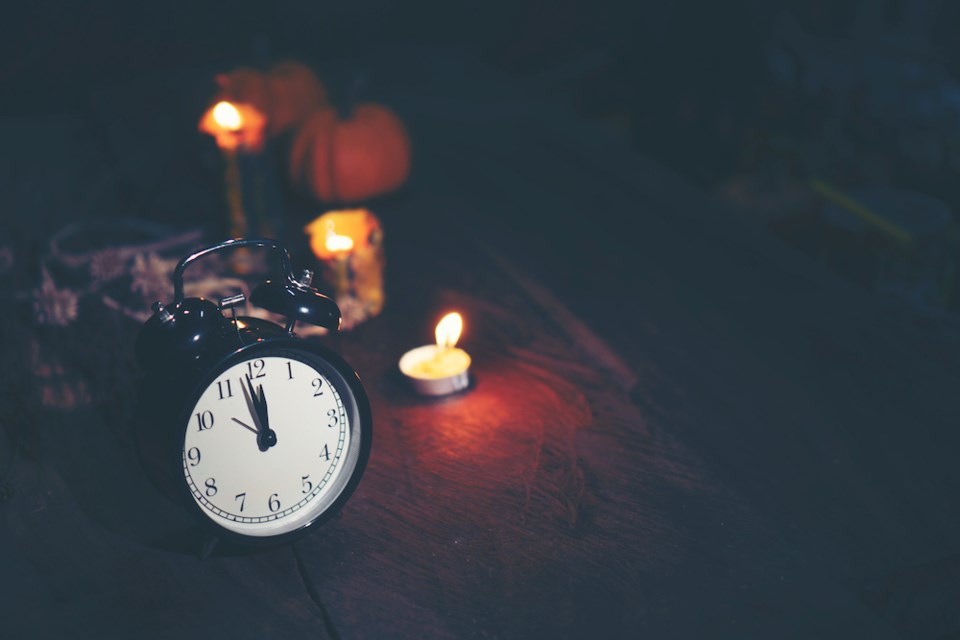Halloween celebrations this year are destined to be unlike any others, for more reasons than one.
Of course, the ongoing COVID-19 pandemic is forcing British Columbians to consider different or altered ways of celebrating the spookiest day of the year, but we'll skip subjecting our readers to yet another article focused on how to celebrate safely.
Another major change this year? Halloween night—which happens to fall on a Saturday—will last one hour longer than usual.
Daylight Saving Time (DST) began at 2 a.m. on March 8 this year. Now, it's set to end, with clocks falling back an hour at 2 a.m. on Sunday, Nov. 1 in a return to standard time.
Unfortunately for Halloween revellers, the time change won't necessarily translate into an extra hour of partying. In normal years, the annual rollback would result in packed bars and nightclubs staying open for business for the extra hour, but public health orders restricting liquor sales to a 10 p.m. cutoff mean last call will come long before the clocks shift back.
While the time change may net you an extra hour of sleep-in time Sunday morning, or a few extra rays of morning sunshine if you're an early riser, that means sunset will also come an hour earlier than southern B.C. has become accustomed to in recent weeks.
But not all British Columbians will see their clocks change this weekend: Part of the Peace River Regional District is on Mountain Time, and does not observe DST, while the municipality of Creston similarly observes Mountain Standard Time year round. That means those regions share a time zone with Calgary and Edmonton in the winter, and Vancouver during the warmer months. Saskatchewan also avoids observing DST, and remains on standard time year-round.
Vancouver clocks are due to spring ahead again on Sunday, March 14 in 2021, while DST is set to end on Sunday, Nov. 7 next year—so savour this extra-long Halloweekend while you can!


